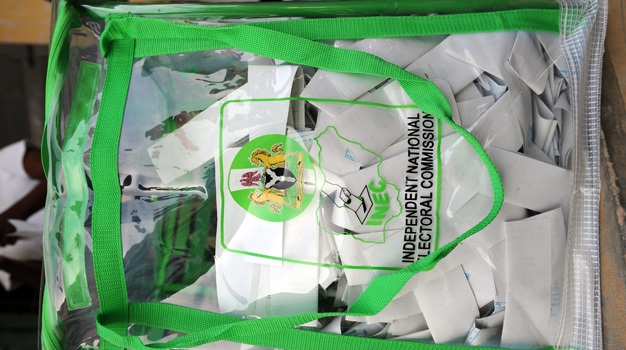Over 200,000 corps members were deployed as INEC ad-hoc staff during the 2023 general elections. They play a crucial role in the process, manning polling units, handling electoral materials and making sure every vote counts.
This story is a first-person account of events from one of these corps members, who worked as a Presiding Officer in the February 25 presidential election in Osun state.

I’m a big fan of accountability and good governance. I believe elections matter. I don’t have a Permanent Voter’s Card (PVC), but I figured it shouldn’t stop me from participating in the 2023 general elections. As a serving corps member, I could sign up as an INEC ad-hoc staff. This way, I could ensure votes cast mattered at my polling unit. So I registered, did the mandatory training, and like everyone else, I looked forward to the elections.
INEC promised ad-hoc staff three things — welfare, security and due process. They barely delivered on any. On the eve of the elections, I found my way to the Registration Area Centre (RAC) per instructions. All electoral officials would spend the night there, get the election materials the following morning and make for our polling units.
The RAC was a secondary school. But I didn’t imagine all the rooms in the school would be mosquito-infested. The least INEC could’ve done was fumigate one or two rooms in the building they kept us in. And it didn’t help that the closest thing to sleeping materials the commission provided were a bunch of mats. They weren’t even enough for the corps members who signed up to work during the elections.
We survived the night, but this was a sign of things to come.
On election day, I got my materials and set out to the polling unit. One of the first things I noticed was my polling unit was short of an electoral officer. During the training in the months leading up to the election, they told us each polling unit would be managed by a Presiding Officer (PO) and three Assistant Presiding Officers (APOs).
However, we didn’t have an APO 3 – whose role is to control the queue of voters – in my polling unit. As I found out hours later, the same thing happened across other polling units in my ward. This was interesting because when I checked the ad-hoc staff directory, each polling unit had an APO 3 assigned to them.
Something had happened.
It turned out the names I saw didn’t exist. The Supervising Presiding Officers (SPO) filled the APO 3 roles with ghost workers. Essentially, the government will pay for people who don’t exist and didn’t do any work.
I wonder where the money will go.

Back to my polling unit.
An APO 3’s job is to manage the conduct of voters and maintain orderliness in the polling unit. Without one, we were short-staffed. Thankfully, the party agents and young people in the unit helped us to control the queue. It could’ve been worse.
Remember that they promised us security, too. We got an elderly policeman who couldn’t do much, and we felt exposed the whole time.
One of my friends at a different polling unit had a scarier experience. Some thugs came, fired a few shots in the air and asked her to think through returning for the forthcoming House of Assembly elections.
If anyone wished to attack us, they would’ve been successful.
At different times during the election, the party agents came in clusters to discuss with the voters. They asked the voters for their account numbers, promising to send them some money if they voted for a particular party or candidate. It looked a lot like vote buying.
INEC instructed us to look out for vote buying and stop it, but only if it happened close to the voting area. If it didn’t, they asked us not to interfere in the process, especially if it might put us at a security risk.
With this in mind, all we could do was stay on the sidelines and do our jobs — the only thing we could control.

In my friend’s polling unit, someone came and distributed prepaid ATM cards — they work the same way gift cards and vouchers do — to the voters. Each card was loaded with a sum and whoever got one only needed to activate the card at an ATM machine to access the money.
By the end of the voting process, I knew one thing — the cash scarcity didn’t stop vote buying.
But this wasn’t the last of the irregularities I witnessed.
I’ve seen a couple of complaints online about manipulated results and people blaming us corps members for it. From my experience, Presiding Officers are pawns in whatever chess game INEC staff are playing. It’s not far-fetched to say that some Presiding Officers were forced to countersign fabricated results.
In my polling unit, we accredited 288 people, but 287 people voted, which meant someone left without voting. I didn’t think this was a problem. The rule states that the number of votes cast cannot exceed the number of accredited voters. So we were good.
However, the INEC official I reported to at the collation centre didn’t think so. They asked me to stamp an unused ballot and record it as an invalid vote. Subsequently, they adjusted the numbers so that we could have equal numbers of accredited voters and actual voters.
While this didn’t mess with the actual results, it rubbed me the wrong way because I was forced to sign off on the change they made.
I’m glad the federal part is over. I signed up to participate in the next set of elections, but now, I’m wondering if it’s a good idea. I hope INEC is more prepared this time around.





